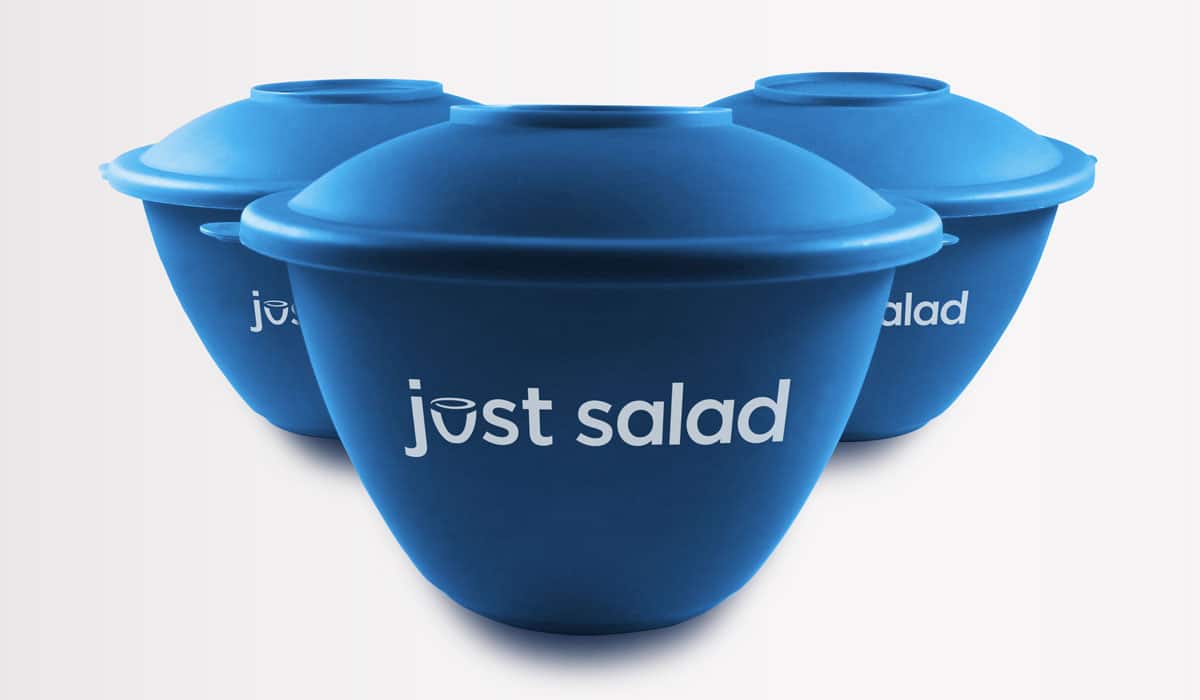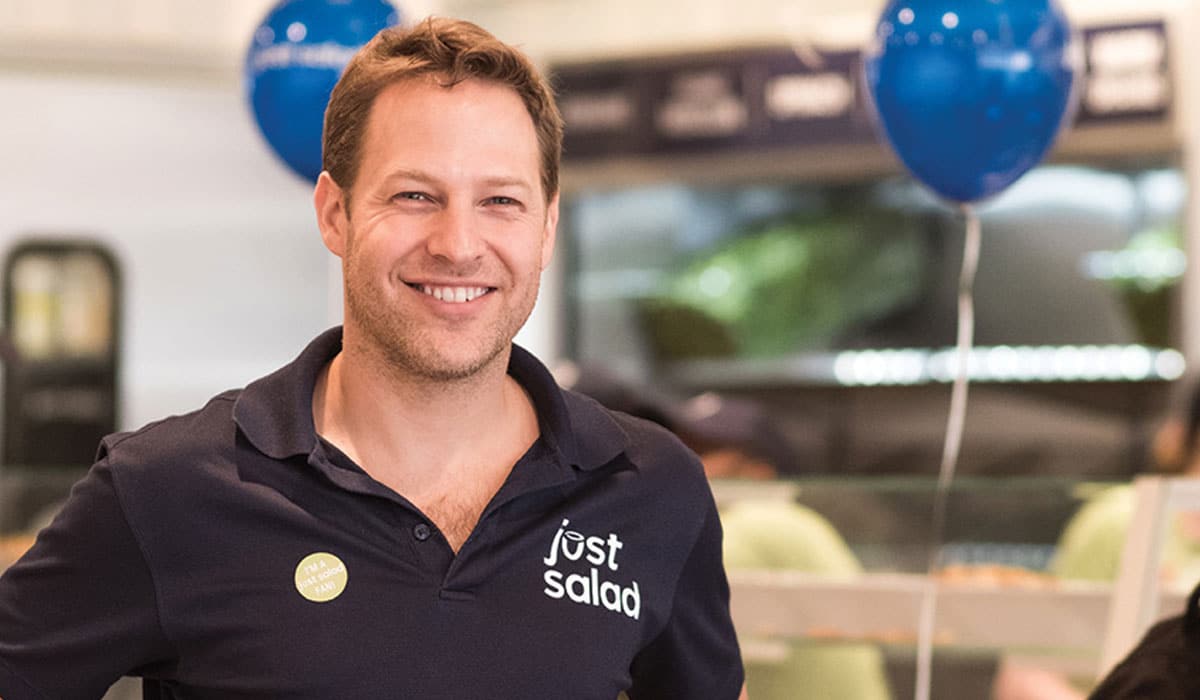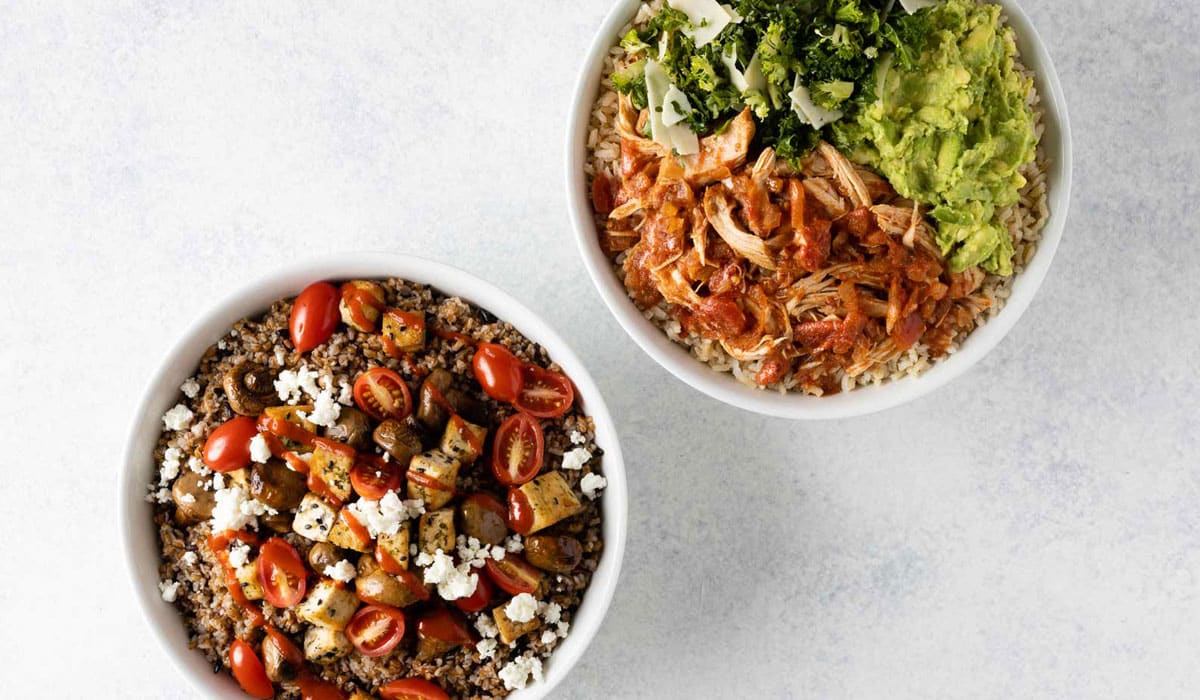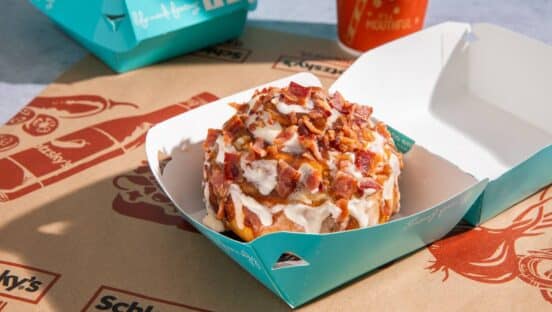Just Salad’s mission can be summed up by its straightforward tagline: “Healthy for Everyone.” In reality, though, making healthy, sustainable food available to all customers is a complicated and complex goal.
“Our mission is to be an everyday solution of affordable health and sustainability, and sometimes those goals run counter to each other,” founder and CEO Nick Kenner says. “We’ve been very creative in managing to keep most, if not all, items under $10, while also bringing forth a ton of sustainability and accessibility efforts. It’s not easy, but it’s also our secret sauce.”
In 2019’s fourth quarter, Just Salad rolled out one of its most futuristic of these efforts yet. Health Tribes is a virtual concept created by the salad chain in partnership with Grubhub. While it caters to those already within zip code range of existent Just Salad brick-and-mortars, it works to widen the brand’s audience by providing nutritionist-approved options for diners with any allergy or dietary restriction.
Rather than add a plethora of allergy-friendly options to in-store salad, bowl, wrap, toast, soup, and smoothie offerings, Just Salad expanded its menu via Health Tribes, using existing kitchens to build the off-premises orders.
“Health Tribes came from the idea that we wanted to meet evolving dietary preferences for more customers. We felt that, if we added those selections to the Just Salad menu, we’d have hundreds of items and that would be overwhelming,” Kenner says.
The online concept has specific branding that differentiates it from Just Salad, as well as a separate presence on the salad chain’s app and online ordering system. Customers can place orders either directly through Just Salad’s platforms or through Grubhub.
So far, Kenner has been pleased with the results. While Just Salad’s sales are traditionally lunch-heavy, Health Tribes has brought in new customers for the dinner daypart in particular. The virtual platform also functions as a testing ground for new recipes, with items that garner success through Health Tribes slated for graduation to the brick-and-mortar menu.
As off-premises ordering grows in popularity, the virtual model could prove to be a sustainable revenue stream and growth vehicle for Just Salad. Grubhub is one of the major players in the third-party scene—tech company Second Measure reported last month that the service and its subsidiaries earned 31 percent of U.S. meal delivery sales last December—giving Health Tribes exposure to a wide base of off-premises customers. The brand could also expand into markets beyond the Just Salad brick-and-mortar network through cloud kitchens, an option that Kenner says could be added once the digital-only concept gains exposure.

“We’re continuing to drive awareness to it and get operations comfortable with it now, but it is here to stay and will hopefully be a big part of our growth in the future,” he says.
While Health Tribes ups accessibility for customers, Just Salad’s in-store menu and operations are where most of the brand’s sustainability efforts come into play. The company has a system-wide goal of eliminating all single-use plastic packaging by 2022, and Kenner says he hopes to begin moving toward that goal in 2020.
Progress has already been made with the Just Salad reusable bowl program—recognized by the EPA as the largest reusable bowl program in the world. The program saves around 75,000 pounds (or one Empire State Building) of plastic per year by offering customers the chance to buy a reusable salad bowl for $1. Guests are incentivized to actually use the bowl by receiving one free salad topping each time they bring it back
A chief sustainability officer was also put in place to spearhead all waste-saving initiatives, and the brand has nailed down a system for evaluating operations and products from a sustainability standpoint.
“First, we look at it and ask if we can find a way to reuse, like the bowl program. Then, we ask if we can reduce—for instance, don’t give each customer a napkin and a fork, make people opt in. What can’t be reduced or reused should be composted, and then, at the very bottom, very little or none at all ends up in a landfill. We’re segmenting this process out through every step of our supply chain and operations,” Kenner says.
Menu developments reflect a similar devotion to the environment. In September, beef was entirely replaced with Beyond Beef meatballs at all locations. The Beeyond replacement came at the same time as the announcement of plans to go completely meatless in the next five years, and Kenner says that more plant-based partnerships are on the way.
“We’re continuing to look for more great tasting plant-based options—it’s something that’s here for a long time and something that is really exciting to our guests,” he says.
When selecting new markets in the future, the Just Salad team will look for areas that will respond to this earth-first mindset.

In 2020, the plan is to pursue new locations in markets where Just Salad already exists—New York, Philadelphia, Chicago, Florida, and North Carolina. But Kenner says he hopes the next couple of years bring one or two new markets, as well.
“There are the traditional demographics of income and education as well as the performance of fast-casual peers that drive decisions about new markets. But a huge driver for us is the health and wellness mindset of the communities we are looking at. We have to visualize if the health, fitness, and sustainability components of our brand resonate or not,” he says.
While sustainability and accessibility are two key areas of opportunity and focus for Just Salad, some of the typical stressors for other fast casuals—such as labor—do not present as great of a challenge for the chain.
Just Salad’s workforce of more than 1,000 employees is made up largely of millennials and Gen Z’s—generations eager to work with fresh, clean ingredients in capacities that involve human interaction. As opposed to a labor shortage, Kenner says the challenge is making sure that all new team members are appropriately trained and knowledgeable about the brand’s culture and systems.
The higher wage requirements in some of the brand’s markets—e.g. in New York, Just Salad’s average pay is $16 an hour—could actually be infusing new cash into local economies and boosting the numbers of customers able to pay for Just Salad’s product, Kenner says. He believes that a new customer base better-equipped to purchase clean foods helped bring same-store sales up by 18 percent over 2019.
“Minimum wage has been a benefit to our company from a business perspective as well. It has opened up a whole new customer base for our product. Honestly, the wages side of things has been pretty good to us,” he says.





